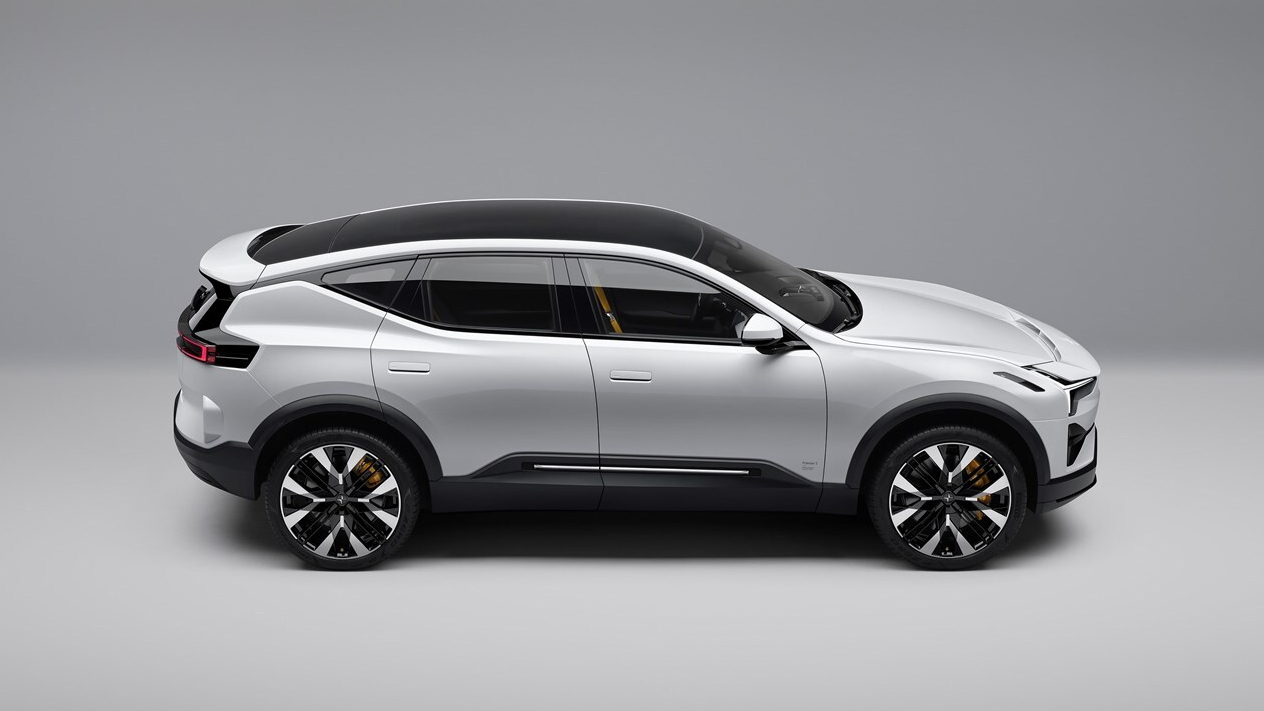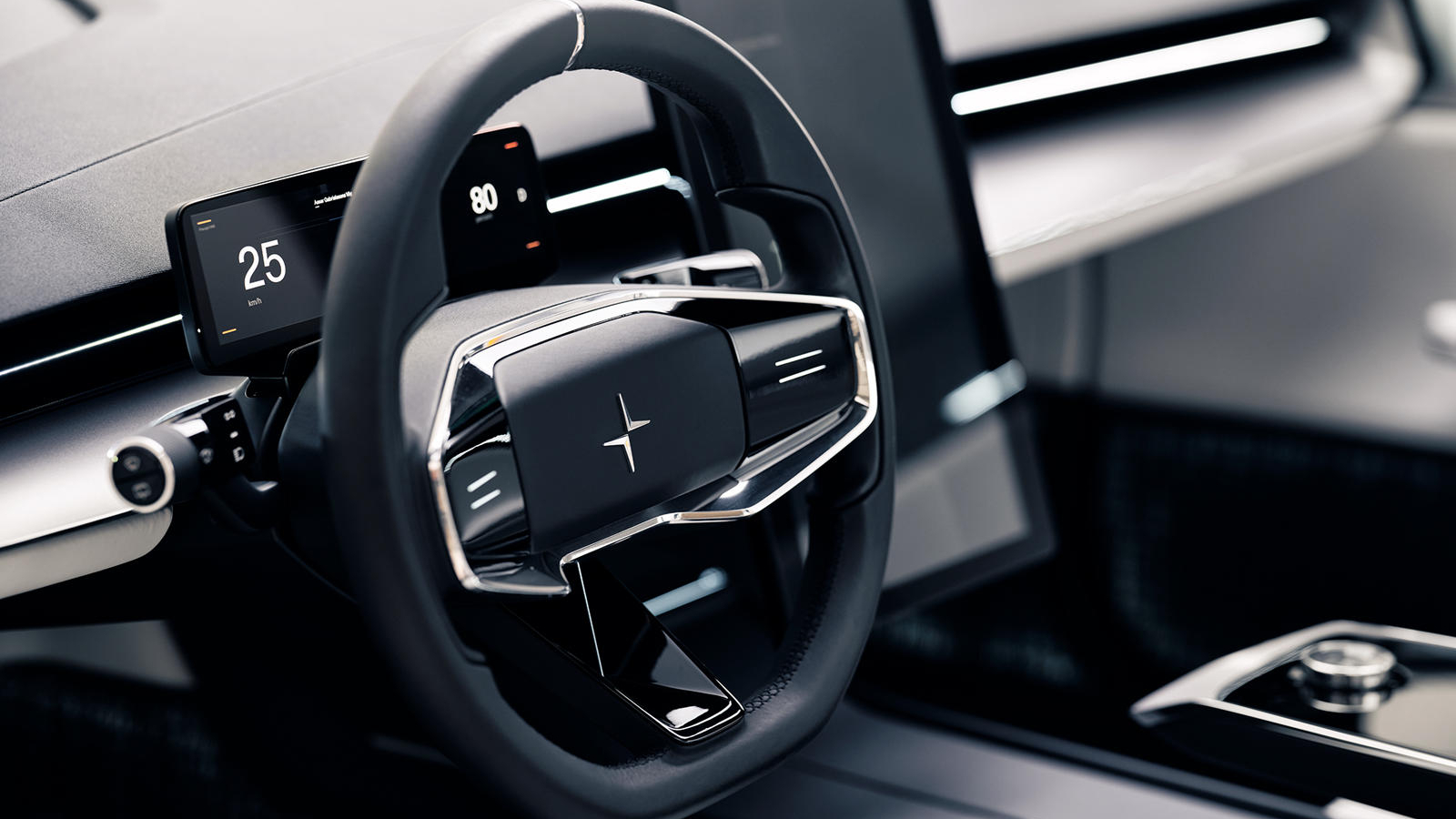
Volvo subsidiary Polestar has teased the arrival of its first electric SUV, the Polestar 3 – and by the sounds of things, it could break new ground for self-driving technology.
Set to be officially unveiled in October before rolling out to customers in “early 2023”, the Polestar 3 will aim to rival the Tesla Model X, Audi e-tron, and Mercedes EQS SUV in the range and performance departments, but the car will also feature a potentially market-leading autonomous highway driving system.
Powered by a "best-in-class LiDAR sensor" and "centralized NVIDIA computing power," the premium SUV will benefit from the same self-driving technology as Volvo's next XC90 SUV to offer drivers the ability to cruise at high speed with almost no human input. However, the feature will arrive "over time" and be the subject of constant over-the-air updates, as highway infrastructure and transport legislation play catch-up.
In a 2020 interview with The Verge, Volvo’s chief technology officer, Henrik Green, elaborated on this so-called Ride Pilot system, saying that cars fitted with the then-in-development software wouldn’t require the same level of attention as other vehicles already claiming to support self-driving functionality.
Green cited Tesla’s Autopilot and Cadillac’s Super Cruise feature as examples of systems that still require drivers to "stay in the loop" should they need to regain control of their vehicles. The 2022 XC90 SUV (and therefore the Polestar 3), he said at the time, will instead use an advanced LiDAR sensor to eliminate the need for intervention.
"Soon, your Volvo will be able to drive autonomously on highways when the car determines it is safe to do so," Green said in a press release announcing Volvo’s partnership with LiDAR manufacturer Luminar. "At that point, your Volvo takes responsibility for the driving and you can relax, take your eyes off the road and your hands off the wheel."

That all sounds great in principle, and Volvo’s commitment to hyper-accurate LiDAR sensors over camera-based scanning systems (of the sort favored by Elon Musk’s automaker) suggests the Polestar 3 and new Volvo XC90 may genuinely make good on their self-driving promise.
Get daily insight, inspiration and deals in your inbox
Sign up for breaking news, reviews, opinion, top tech deals, and more.
In practice, though, drivers’ ability to use Volvo’s Ride Pilot system will depend on the viability of the highways themselves – and it’s unlikely that the brand’s autonomous software will better Tesla’s equivalent straight out of the box.
Volvo itself has also admitted that the road to total vehicular autonomy will be a gradual one, with over-the-air updates set to be provided to its upcoming vehicles that will "expand the areas in which [these cars] can drive [themselves]."
In reality, then, a truly self-driving Polestar 3 is several years away – but it's undoubtedly promising to see another major carmaker preparing its vehicles for an autonomous future.
As mentioned, the Polestar 3 is scheduled to begin hitting roads at the beginning of next year, though the company also has another SUV, the Polestar 4, and a sports sedan, the Polestar 5, in the pipeline for 2023 and 2024, respectively. We’ll share more details on all three models as and when they’re officially unveiled.

Axel is TechRadar's UK-based Phones Editor, reporting on everything from the latest Apple developments to newest AI breakthroughs as part of the site's Mobile Computing vertical. Having previously written for publications including Esquire and FourFourTwo, Axel is well-versed in the applications of technology beyond the desktop, and his coverage extends from general reporting and analysis to in-depth interviews and opinion. Axel studied for a degree in English Literature at the University of Warwick before joining TechRadar in 2020, where he then earned an NCTJ qualification as part of the company’s inaugural digital training scheme.